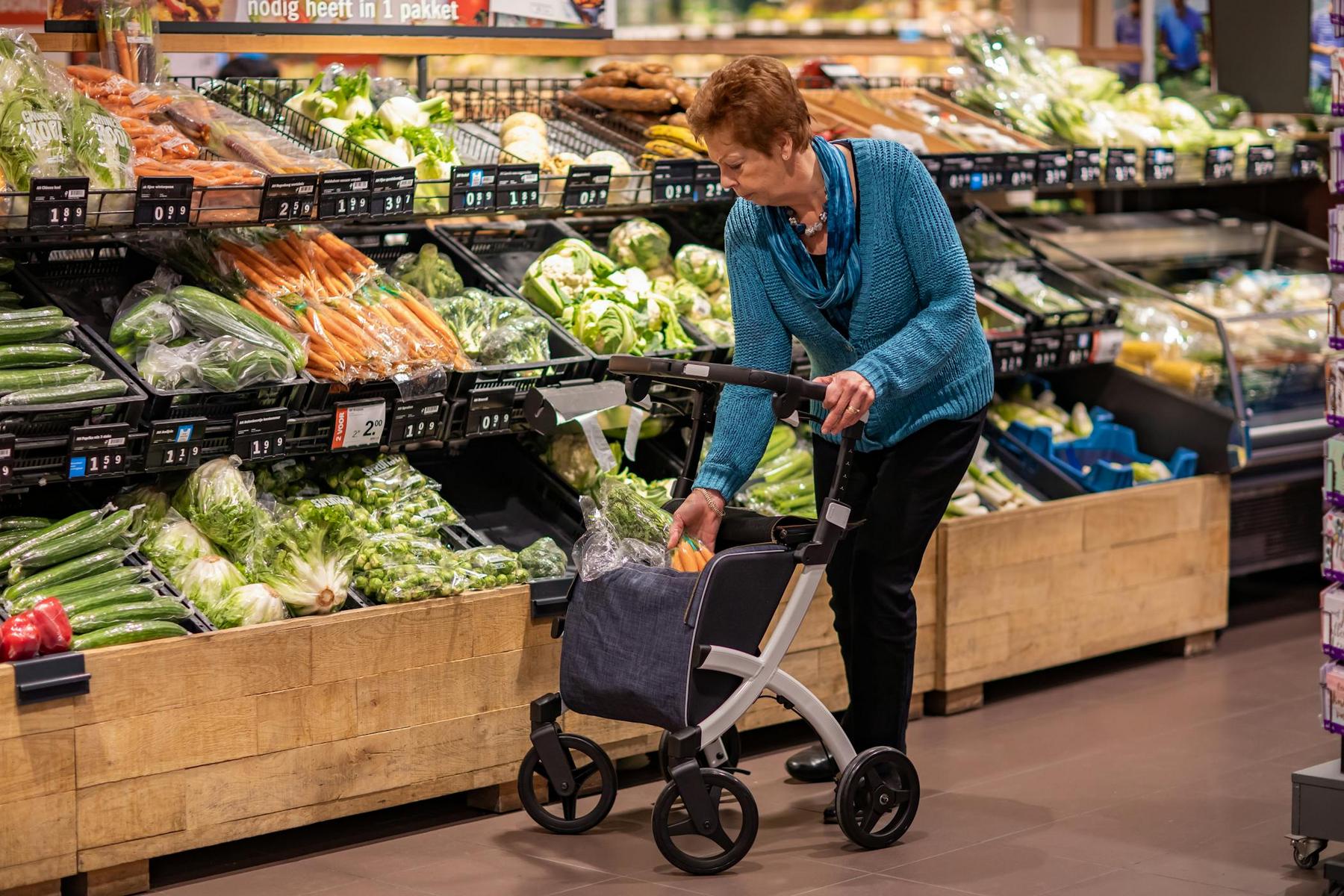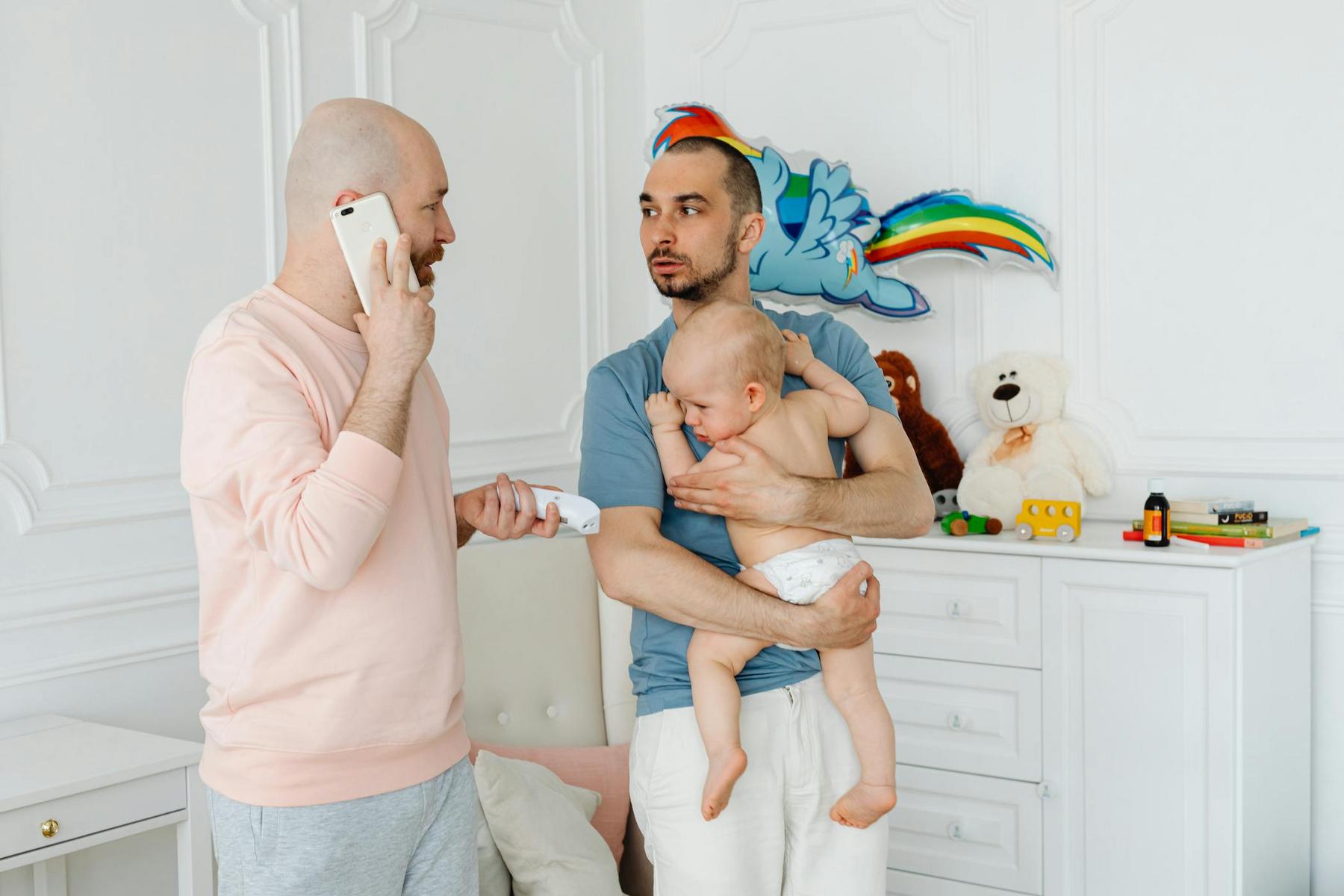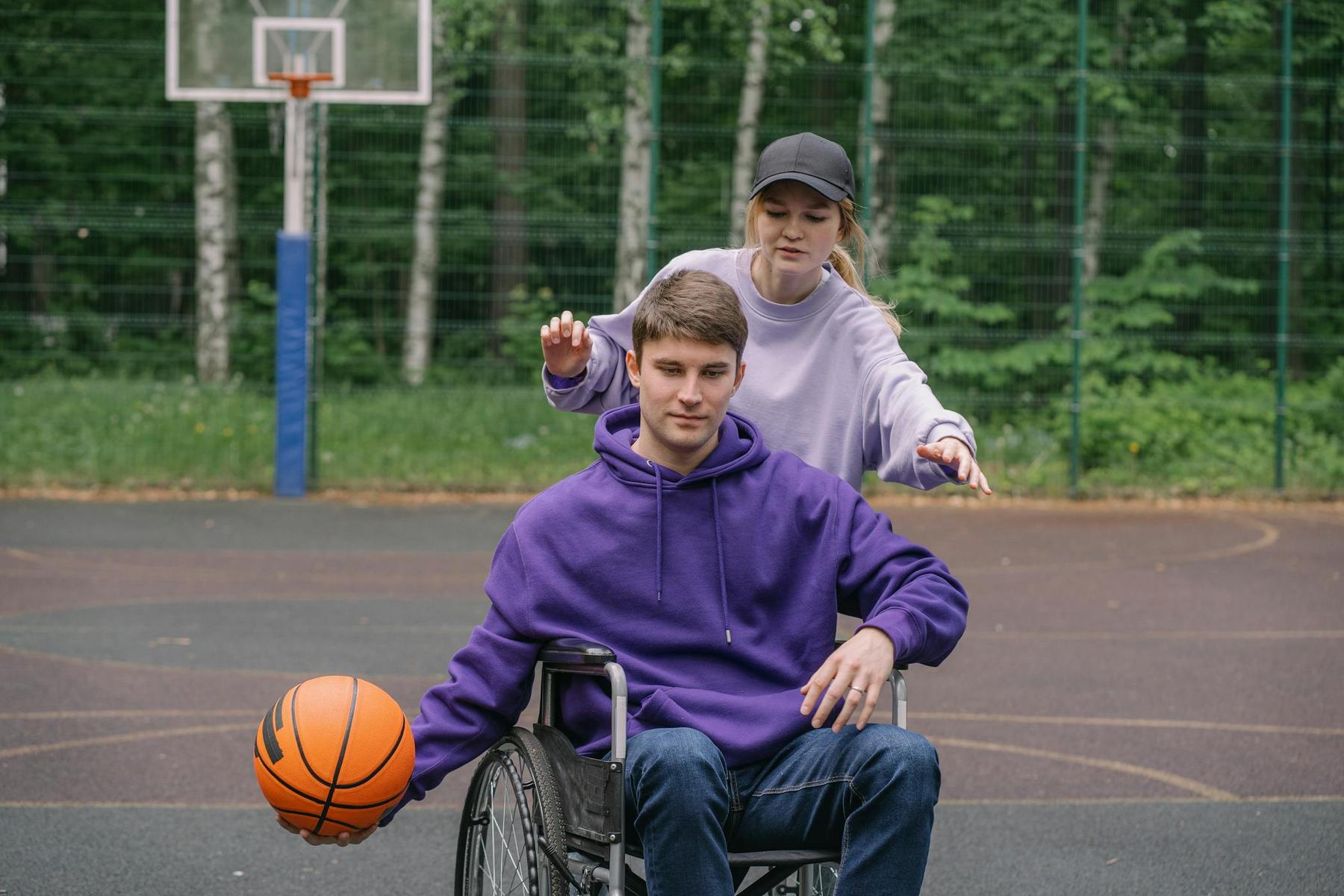Shopping should be a pleasure, not a challenge. Yet for many Australians with disability, navigating shopping centres can feel like traversing an obstacle course designed without their needs in mind. When bright lights trigger sensory overload, when accessible toilets remain locked, or when narrow aisles make wheelchair navigation impossible, what should be a simple errand becomes an exhausting ordeal. With 5.5 million Australians—21.4% of the population—living with disability, the question isn’t whether shopping centres should be accessible, but rather how we ensure genuine independence for everyone who walks, wheels, or is supported through their doors.
This guide explores Brisbane’s most accessible shopping centres, the features that truly matter, and how you can shop with confidence and dignity in 2026.
What Makes a Shopping Centre Truly Accessible in Brisbane?
True accessibility extends far beyond a disability parking space and a ramp. When we examine what creates genuine independence, we’re looking at a comprehensive ecosystem of features that work together seamlessly.
Physical accessibility forms the foundation. The Disability (Access to Premises – Buildings) Standards 2010, updated in November 2024, sets minimum requirements for new and refurbished buildings across Australia. These standards ensure level access, adequate aisle widths of at least 914mm, and accessible facilities throughout. Brisbane’s major shopping centres increasingly exceed these minimums, recognising that compliance alone doesn’t equal genuine inclusion.
Mobility support services make independence possible for many. Complimentary wheelchair hire has become standard at centres like Pacific Fair, Carindale Shopping Centre, and Indooroopilly Shopping Centre. Some venues offer motorised scooters, whilst concierge teams trained in disability awareness can assist with advance bookings. This isn’t charity—it’s recognition that approximately 1.3 million Australians have profound or severe core limitations requiring equipment support.
Specialised facilities address dignity and care needs. Changing Places facilities represent a revolution in accessible design. These larger-than-standard spaces include height-adjustable adult-sized change tables, ceiling hoists with 200kg capacity, and peninsula toilets with proper circulation space. Under the National Construction Code, shopping centres with design occupancy of 3,500 or more people must now include at least one Changing Places facility—a requirement that’s transforming community access for people with high support needs.
Navigation and wayfinding systems ensure no one gets lost. Tactile floor indicators, Braille signage, high-contrast visual guides, and sensory maps help people with vision impairments navigate independently. DFO Brisbane’s sensory maps identify loud and busy areas alongside quieter zones, whilst induction loops at information desks support hearing-impaired visitors. These aren’t add-ons—they’re essential infrastructure enabling independent movement through complex retail environments.
Why Do People with Disability Avoid Shopping Centres?
The statistics tell a sobering story. Of all Australians with disability aged 15 and over, 33.1% avoided situations because of their disability. Going to shops, banks, and similar venues ranked amongst the most commonly avoided situations, with 34.3% of those who avoid situations citing retail environments specifically.
Sensory overwhelm drives avoidance for many. An estimated 80% of disabilities are invisible or hidden, including autism, ADHD, anxiety, chronic pain, and sensory processing disorders. Up to 70% of autistic people experience sensitivity to sounds, and when combined with bright fluorescent lighting, competing background music, PA announcements, and crowded spaces, shopping centres can become genuinely painful environments. One Autistic Australian identified in 2022 brings the national total to 290,900—a 41.8% increase since 2018—underscoring the growing need for sensory-friendly options.
Physical barriers continue despite legal requirements. Narrow aisles prevent wheelchair navigation when displays spill into pathways. Checkout counters exceed the recommended maximum height of 914mm, forcing wheelchair users to strain or depend on assistance. Locked accessible toilets during opening hours—a complaint so common it appears across multiple centre reviews—transform simple shopping trips into anxiety-inducing races against time.
Social barriers hurt as much as physical ones. Nearly one in five Australians with disability (19.8%) experience discrimination, with service and hospitality staff accounting for 38.6% of reported incidents. When staff lack training in disability awareness, when assumptions are made about capability based on appearance, or when assistance is offered in patronising ways, the emotional toll accumulates. Shopping becomes not just physically challenging but emotionally exhausting.
Navigation challenges create stress before shopping even begins. Complex layouts without clear wayfinding, inconsistent accessibility features between different wings, and information available only through visual means all contribute to pre-visit anxiety. For people with cognitive disabilities, memory impairments, or processing difficulties, navigating an unfamiliar multi-level shopping centre can feel genuinely overwhelming.
Which Brisbane Shopping Centres Lead in Accessibility Features?
Brisbane’s shopping landscape shows significant variation in accessibility commitment. Here’s a comprehensive comparison of features across major centres:
| Shopping Centre | Wheelchair Hire | Changing Places | Sunflower Scheme | Quiet Hours | Sensory Maps | Free Disability Parking |
|---|---|---|---|---|---|---|
| Pacific Fair | ✓ | ✓ | ✓ | Varies by tenant | No | ✓ |
| DFO Brisbane | ✓ | No | ✓ | Varies by tenant | ✓ | Standard rates apply |
| Carindale Shopping Centre | ✓ | No | ✓ | ✓ (participating stores) | No | ✓ |
| Indooroopilly Shopping Centre | ✓ | ✓ | No data | Varies by tenant | No | ✓ |
| Queens Plaza | No data | No | ✓ | No data | No | Standard rates apply |
Pacific Fair stands out for comprehensive facilities. Despite being technically on the Gold Coast rather than Brisbane proper, its proximity and comprehensive features make it worth noting. The centre offers complimentary wheelchair hire with advance booking, a fully equipped Changing Places facility with ceiling hoist and shower, and participation in the Hidden Disabilities Sunflower scheme. Free all-day parking for disability permit holders eliminates the financial barrier many face.
DFO Brisbane excels in sensory-friendly design. Their sensory maps represent best practice, identifying areas with varying lighting levels, loud music zones, and temperature variations. This transparency allows shoppers to plan routes avoiding triggers or prepare for challenging areas. Service animal relief areas in leafy green zones demonstrate attention to the full spectrum of disability needs. Staff trained in disability awareness provide another layer of support.
Carindale Shopping Centre balances features with accessibility. Located in Brisbane’s eastern suburbs, Carindale offers complimentary wheelchair hire with booking options, accessible facilities throughout, and participation in quiet hour programmes through individual retailers like Coles and Target. The Hidden Disabilities Sunflower scheme implementation signals understanding of non-visible disabilities. Free disability parking removes one common barrier to access.
Indooroopilly Shopping Centre provides specialised facilities. The inclusion of a Changing Places facility positions Indooroopilly as genuinely accessible for people with high support needs. Tactile floor indicators and Braille signage demonstrate commitment to vision-impaired accessibility. Wheelchair-accessible seating throughout, including options with armrests for transfer support, shows attention to rest and recovery needs during extended shopping trips.
How Are Shopping Centres Supporting Hidden Disabilities?
The Hidden Disabilities Sunflower scheme has transformed how Brisbane shopping centres acknowledge and support non-visible disabilities. Launched globally in 2016 and now available at over 300 airports and major retail locations worldwide, the simple green lanyard with sunflower design signals to trained staff that someone may need additional time, patience, or assistance—without requiring disclosure of specific conditions.
Brisbane centres increasingly offer free Sunflower lanyards. Pacific Fair, DFO Brisbane, Carindale Shopping Centre, Queens Plaza, and multiple Westfield locations provide lanyards from customer service desks at no cost. This accessibility removes barriers for people who might hesitate to identify themselves or who’ve only recently acquired disability. The lanyards remain property of the wearer, eliminating the indignity of returning equipment or proving eligibility repeatedly.
Staff training makes the scheme meaningful. A lanyard without trained, responsive staff achieves little. Centres implementing comprehensive disability awareness training report better outcomes. Staff learn to recognise Sunflower wearers, understand appropriate ways to offer assistance (asking first, never assuming), and appreciate the diversity of hidden disabilities from autism and ADHD to chronic pain and cognitive impairments.
Quiet Hour programmes complement Sunflower initiatives. Following successful trials, Coles expanded Quiet Hour nationally to most stores, offering 10:30am-11:30am on Tuesdays and 6:00pm-7:00pm Monday through Friday. During these times, lighting reduces, music volume drops to minimum levels, PA announcements cease except for emergencies, and register scanner volumes decrease. Additional staff provide support, whilst trolley collection pauses to minimise noise. Woolworths, Target, and Kmart in Brisbane shopping centres offer similar programmes.
Sensory maps empower informed decision-making. DFO Brisbane’s detailed sensory mapping identifies specific areas where noise levels increase, lighting brightens, or crowds typically gather. This information allows people with sensory sensitivities to plan routes, time visits during quieter periods, or prepare coping strategies before entering challenging zones. The transparency demonstrates respect for autonomy—providing information rather than making assumptions about what people can handle.
What About Changing Places Facilities and Personal Care Needs?
For people with profound or severe disabilities requiring personal care assistance, standard accessible toilets prove inadequate or impossible to use. Changing Places facilities address this critical gap, enabling community participation that would otherwise remain impossible.
The National Construction Code now mandates Changing Places. Since 1 May 2019, shopping centres with design occupancy of 3,500 or more people must include at least one Changing Places facility. With over 300 locations now across Australia—135 in Victoria alone—the network continues expanding. Brisbane centres including Pacific Fair and Indooroopilly Shopping Centre have implemented these facilities, whilst advocacy continues for broader adoption.
Equipment specifications ensure genuine usability. Changing Places aren’t simply larger accessible toilets. They must include adult-sized change tables (minimum 700mm wide, 1,800mm long, height adjustable 450-900mm), constant-charge ceiling hoists with 1,100N load rating providing room coverage, peninsula-type toilets centrally located at 460-480mm seat height, and circulation space with 1,125mm radius for turning. These specifications aren’t arbitrary—they reflect what people with high support needs actually require for dignity and safety.
Access methods vary but typically require MLAK keys. Most Changing Places facilities require a Master Locksmiths Access Key (MLAK) for security and maintenance purposes. Free MLAKs are available for eligible residents with disability through local councils, though eligibility criteria vary by location. Some facilities offer free access without keys, recognising that key requirements can create barriers for visitors or people recently acquiring disability.
The impact extends beyond individual users. Changing Places facilities reduce physical strain on carers through ceiling hoists and proper equipment, rather than manual lifting risking injury to both carer and person being assisted. This matters enormously when 3 million Australians provide unpaid care, with 43.8% of primary carers having disability themselves. Accessible facilities enable longer community participation, reduce anxiety around bathroom access, and support carers’ wellbeing and employment participation.
How Can You Plan an Accessible Shopping Trip in Brisbane?
Preparation transforms potentially stressful shopping trips into manageable, even enjoyable, experiences. Here’s how to maximise accessibility and minimise challenges:
Research facilities before your visit. Check shopping centre websites for specific accessibility information. DFO Brisbane publishes comprehensive sensory maps. Pacific Fair lists mobility equipment availability and booking procedures. Carindale Shopping Centre details quiet hour participation. Ring customer service desks if information isn’t readily available online—their responses also indicate staff knowledge and helpfulness.
Time your visit strategically. Weekday mornings typically see lower crowd density than weekend afternoons. Quiet Hour programmes (10:30am-11:30am Tuesdays, 6:00pm-7:00pm weekdays at participating retailers) offer controlled sensory environments. School holidays and Christmas periods bring significant crowd increases—consider timing visits during term time if sensory issues or mobility challenges make crowds particularly difficult.
Book mobility equipment in advance. Most Brisbane centres offering wheelchair or scooter hire accept advance bookings. Pacific Fair and Carindale Shopping Centre both advertise booking options through customer service. Booking eliminates anxiety about equipment availability, particularly during busy periods. Some centres limit hire duration or require deposits—clarify terms when booking.
Bring your Sunflower lanyard or collect one on arrival. If you have invisible disabilities and would benefit from staff awareness, the free Sunflower lanyard signals your needs without requiring detailed explanations. Collect one from customer service desks at participating centres, or order online from the Hidden Disabilities Sunflower website to use across all participating venues nationwide.
Plan rest breaks and quiet spaces. Shopping requires significant energy, particularly when navigating crowds, managing sensory input, or using mobility equipment. DFO Brisbane’s sensory maps identify quieter areas. Outdoor seating near entrances at multiple centres provides respite from indoor environmental factors. Food courts offer seating, though noise levels typically run higher than other rest areas.
Understand your rights under disability discrimination law. The Disability Discrimination Act 1992 makes discrimination illegal in all public places including shops and shopping centres. This includes refusing access and providing inferior facilities. Centres must make reasonable adjustments unless these cause unjustifiable hardship. Knowing your legal rights helps advocate effectively if you encounter barriers or discrimination.
Moving Forward: Shopping Independence as Community Participation
Shopping represents far more than acquiring goods—it’s community participation, social connection, independence, and dignity. When one in five Australians lives with disability, accessible shopping centres aren’t specialised accommodations but essential infrastructure serving a significant proportion of the community.
The economic reality supports accessibility beyond moral imperatives. Research shows 76% of people whose accessibility complaints weren’t resolved indicated they’d switch to more accessible providers. With over 4 million Australians with disability representing a substantial consumer market—alongside their families, carers, and colleagues—the business case for accessibility strengthens yearly. Better customer satisfaction drives repeat visits and recommendations, increasing foot traffic and rental values.
The legal landscape continues evolving. The November 2024 updates to the Disability (Access to Premises – Buildings) Standards signal ongoing refinement of requirements. In 2023-24, goods, services, and facilities accounted for 33% of Disability Discrimination Act complaints lodged with the Australian Human Rights Commission—the highest category. Shopping centres ignoring accessibility face both legal risks and reputational damage in an increasingly disability-aware society.
Brisbane’s shopping centres show progress but inconsistency. Whilst leaders like DFO Brisbane implement comprehensive sensory maps and Pacific Fair provides full Changing Places facilities, gaps remain. Not all centres offer mobility equipment hire. Free disability parking isn’t universal. Staff training varies enormously. The Sunflower scheme reaches some but not all venues. Changing Places facilities, whilst mandated for larger centres, remain absent from many qualifying locations.
Individual shoppers can drive change through feedback. Compliment centres doing accessibility well—positive feedback reinforces good practice. Report barriers encountered, whether physical obstacles, locked accessible toilets, or staff attitudes. Contact customer service, use feedback forms, and if necessary, lodge complaints with the Australian Human Rights Commission. Each report builds the case for improvement.
For people with disability and their families, shopping independently or with appropriate support enhances quality of life immeasurably. It reduces social isolation, enables community engagement, supports employment and education participation, and upholds fundamental dignity. When shopping centres implement genuine accessibility—not minimum compliance but thoughtful, comprehensive inclusion—they transform daily life for millions of Australians.
Where can I find Changing Places facilities in Brisbane shopping centres?
Changing Places facilities are currently available at Pacific Fair (Gold Coast, accessible from Brisbane) and Indooroopilly Shopping Centre. These specialised facilities include adult-sized change tables, ceiling hoists, and proper circulation space for carers. Most require a Master Locksmiths Access Key (MLAK), available free for eligible residents with disability through local councils. Check the Changing Places Australia website (changingplaces.org.au) for an interactive map showing all locations across Queensland, as the network continues expanding with new facilities opening regularly.
Are Hidden Disabilities Sunflower lanyards available at all Brisbane shopping centres?
Sunflower lanyards are increasingly available but not yet universal across Brisbane. Confirmed participating centres include DFO Brisbane, Carindale Shopping Centre, Queens Plaza, and multiple Westfield locations. Pacific Fair also participates. Lanyards are free from customer service desks—no eligibility documentation required. If your regular shopping centre doesn’t yet participate, request they join the programme, or obtain a lanyard from the Hidden Disabilities Sunflower website to use across all participating venues nationwide.
Which Brisbane shopping centres offer Quiet Hour or sensory-friendly shopping times?
Quiet Hour programmes operate primarily through individual retailers rather than whole-centre initiatives. Coles, Woolworths, Target, and Kmart stores within Brisbane shopping centres typically offer Quiet Hours at 10:30am-11:30am on Tuesdays and 6:00pm-7:00pm Monday through Friday. During these times, lighting dims, music and PA announcements reduce, and additional staff provide support. Carindale Shopping Centre coordinates Quiet Hour participation across multiple retailers. Contact specific centres to confirm which stores participate and exact timing, as implementation varies by location.
Can I bring my service animal to Brisbane shopping centres?
Accredited service and assistance animals are welcome at Brisbane shopping centres under the Disability Discrimination Act 1992. Animals must remain with their handler and be clearly identifiable through harness, lead, or vest. DFO Brisbane provides service animal relief areas in leafy green zones. For non-dog assistance animals, some centres request documentation demonstrating accreditation. Contact customer service before your visit if you have questions about specific requirements or to identify relief areas and water stations.
Is disability parking free at Brisbane shopping centres?
Free disability parking varies by centre. Pacific Fair, Carindale Shopping Centre, and Indooroopilly Shopping Centre offer free all-day parking for disability permit holders. Queens Plaza and DFO Brisbane charge standard parking rates, though disability-designated spaces provide convenient access. Disability parking permits from any Australian state or territory are generally recognised across Brisbane. Always display your permit clearly on the dashboard. Contact individual centres to confirm current parking policies, as these occasionally change, and to identify accessible parking locations relative to main entrances and lift access.



